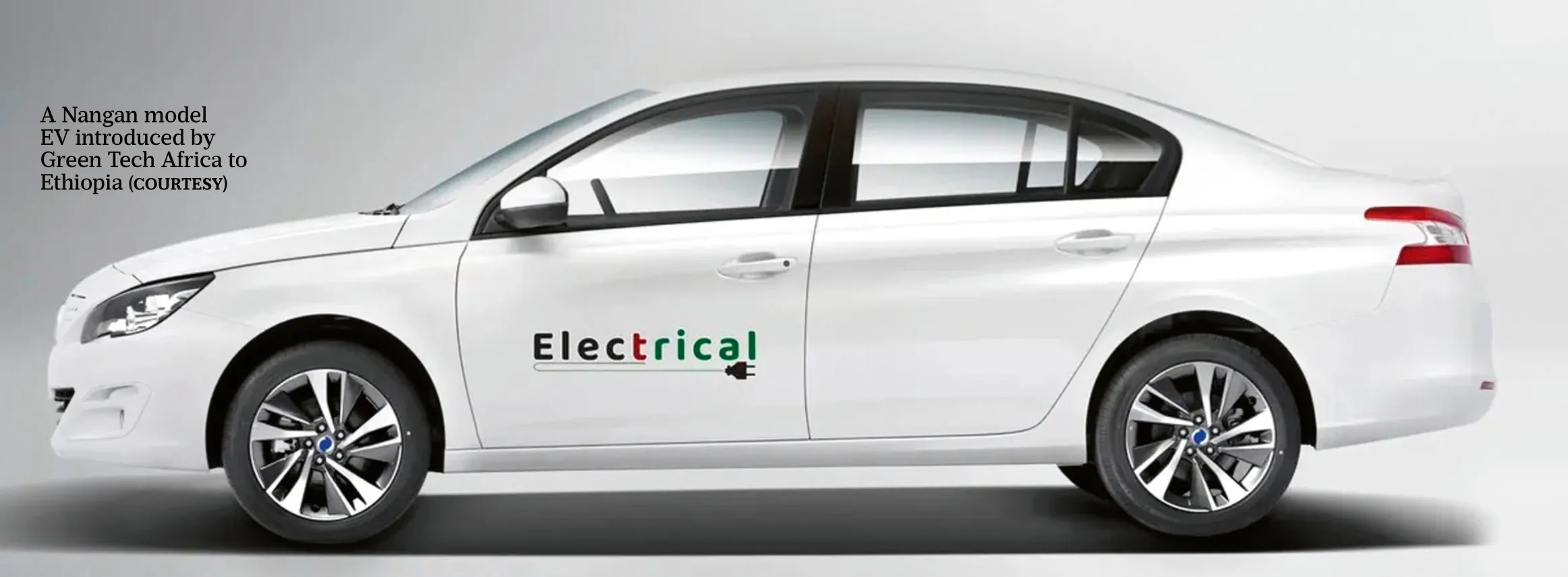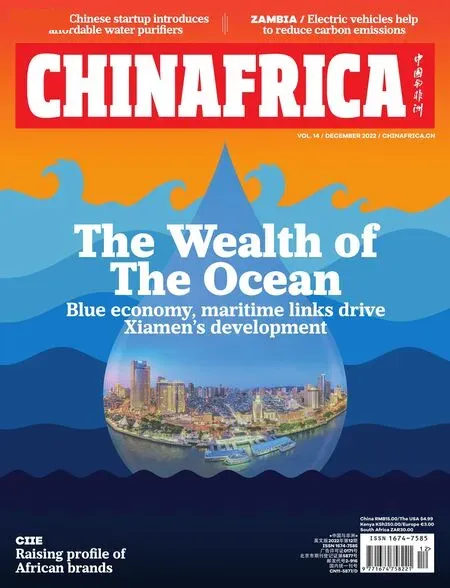The Rise Of Electric Vehicles
Reporting from Ethiopia KIRAM TADESSE
Ethiopia ambitious to expand its carbon emission-free transport system
Electric vehicles (EVs) are seeing a promising start in Ethiopia, where used automobile imports contribute to the biggest volume of air pollution.For countries like Ethiopia, the benefits of EVs go beyond simply reducing carbon emissions;they can in fact be seen in cutting a sizeable chunk of foreign exchange spending on fuel and used vehicle imports.
The government has shown an interest in carbon-free technologies through its policies and strategies, aimed at replacing the growing fuel-consuming transport services. One of the options is the introduction of renewable energy transport services through the use of EVs that will help reduce pollution.
New incentives
In September, the Ministry of Finance announced an exemption of taxes on EVs. The ministry said in a statement that the tax rate for fully imported EVs has dropped to 15 percent, while semi-assembled vehicles will be taxed only 5 percent. This concession aims to encourage investment in the assembly of EVs within the country and those engaged in import.
Over the past few years, the government has also encouraged the importation of new cars through lowering import tax to discourage used vehicle imports that are often associated with pollution and road traffic accidents. Yet, major signs of interest in EVs began to emerge in the country in 2020, when Marathon Motors, a Hyundai dealership, showcased its first locally assembled electric car in a bid to push forward the country’s “greening and climate resilient aspirations.”
In July, before the announcement of the new directive that exempts EVs from taxes, the government launched a month-long free EV transport service campaign in the capital Addis Ababa. The event was commissioned by Green Tech Ethiopia, a Green Tech Africa subsidiary in collaboration with the Ministry of Transport and Logistics. The free of charge public transportation service was intended to demonstrate the efficiency of EVs for the public, the ministry indicated.
Transport and Logistics Minister Dagmawit Moges Bekele indicated at the launch that the government is working to replace the growing fuel-consuming transport service options with environmentally friendly EVs.
She said the introduction and adoption of the technology to tap into the green energy potential will play a key role in securing a clean and affordable energy future for Ethiopia.
Tatek Negash, communications director at the Ministry of Transport and Logistics toldChinAfricathat a 10-year strategic plan has been laid out, with an aim to promote EVs nationwide. Envisaged in the 10-year perspective plan, Negash said, at least 4,800 public transport vehicles and about 148,000 automobiles will be EVs nationwide.
“Since we cannot control the world fuel price, we look to establish sustainable transport services like EVs by expanding renewable energy to reduce fossil fuel cost and eventually reducing air pollution,” he said.

Ethiopia has one of the cheapest electricity costs in the world, said Sitra Ali, CEO of Green Tech Africa,which is one of a few private companies in Ethiopia’s EV market, stressing the benefit of EVs exceeds the cost attached to fuel.
Bekele said the government will integrate the country’s huge renewable energy resources with the growing demand for EVs technologies to realise the vision of creating a carbon emission-free transport system. The ministry provides technical support for investors who wish to import and assemble EVs in Ethiopia.
Ethiopian Electric Power, a government agency responsible for power production, which often associates power disruption with other infrastructural issues other than shortages, asserts that there is enough supply into the national grid available for EV charging stations.
Ethiopian government has shown an interest in carbon-free technologies through its policies and strategies, aimed at replacing the growing fuel-consuming transport services.
Driving ambitions
Ethiopia is familiar with the idea of an electric-powered transport system. It powered the first trans-boundary railway on the African continent, connecting Addis Ababa with Djibouti. Inaugurated in 2018, the railway was built by China Railway Engineering Corp. and China Civil Engineering Construction Corp. The railway,which is East Africa’s first modern railway route, is an upgrade of the original line opened in 1917.
Experts say Ethiopia, which spends a major part of its forex earnings on fossil fuels, should tap into the global climate change agenda as its priority to reduce emissions. Green Tech Africa says it is time for emerging economies to reap the fruits of this technology.
Ali toldChinAfricathat emerging markets can expedite their finance and implement cost-effective development with the use of EVs. “Even if we are an emerging market,we do not need to waste another 30 years [moving along] the same route as the rest of the world, but we can [in fact] jump the trend,” she said.
As ambitions keep growing, Green Tech Africa has become one of the pioneers to officially enter into the EV import market in Ethiopia, following the lead of Marathon Motors, which has been assembling EVs in the country for the past few months. With the short-term plan of importing 5,000 EVs, in August, Green Tech Africa introduced six models of imported rechargeable electric cars made by Chinese Dongfeng Motors Corp.to the Ethiopian market.

A train passes a station on the Addis Ababa-Djibouti Railway powered by electricity in Djibouti on 22 September(XINHUA)
Ethiopia spends about $4 billion every year in fuel imports, and the Ministry of Transport and Logistics says expansion of EVs is a critical way to depart from this spending. Compared with vehicles that consume fuel, Ali indicated that the rechargeable electric cars can save Ethiopia’s hard currency spending to import fuel and spare parts by one-third.
Using the “late comers” advantage that Africa does not need to rebuild infrastructures but instead install new ones such as charging stations, Ali sees enormous opportunities in the African EV development, which will also help to avert the continent serving as dumping ground for used fuel-driven cars. “The old infrastructures in the West were made for fuel while it will be cost-effective for us to embrace the new technology and new infrastructure in line with quick transferring of knowledge,” she said.
A total of 60 EV models were showcased during the July event. Among the models were Anna 200,Jan 450, and Nangan. According to Green Tech Africa,these vehicles have different price ranges: Anna 200 is tagged at approximately $30,000 and once fully charged can travel up to 320 km. The Jan 450 model,on other hand, has an approximate price of $52,000 and can travel up to 450 km on a single charge. The price of the Nangan model EVs is approximately $67,000,and it’s capable of travelling up to 550 km on a single charge. The minibus EV price was estimated to be about$125,000 and it has a capacity of travelling over 320 km per single charge.
Green Tech Africa, which aims to set up East Africa’s EVs hub, is in the process of setting up an EV assembly plant in east Ethiopia. Before that, Ali says they are more focused on infrastructure development such as installation of charging stations.
The Ministry of Transport and Logistics says it is also working on the expansion of electric charging stations,which currently number 40 across Addis Ababa. CA

